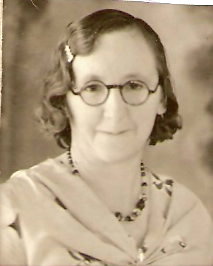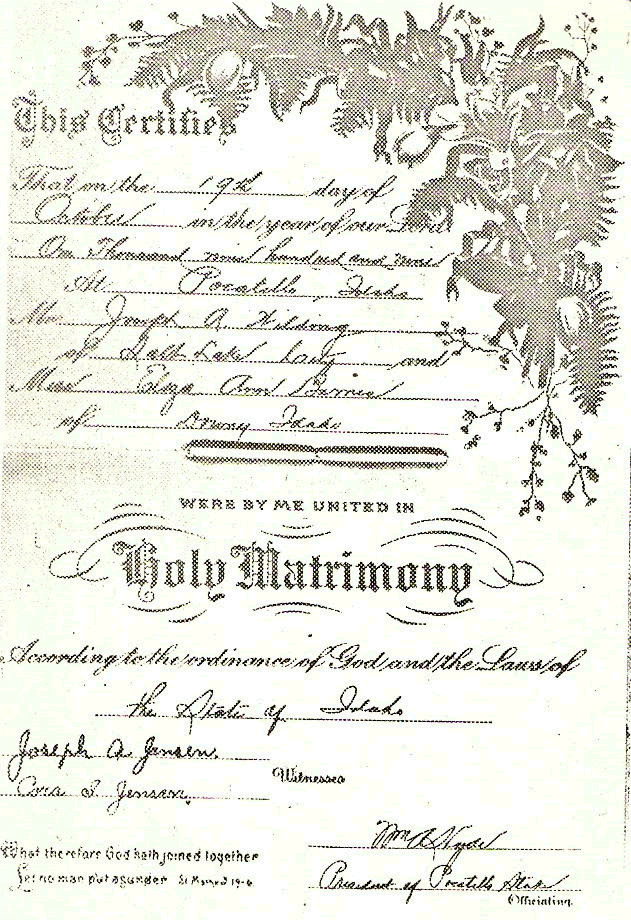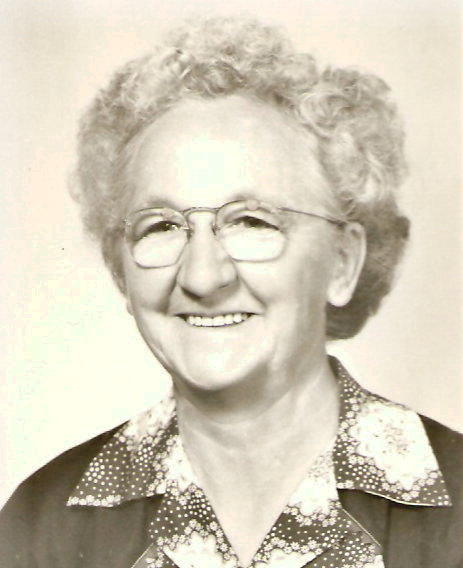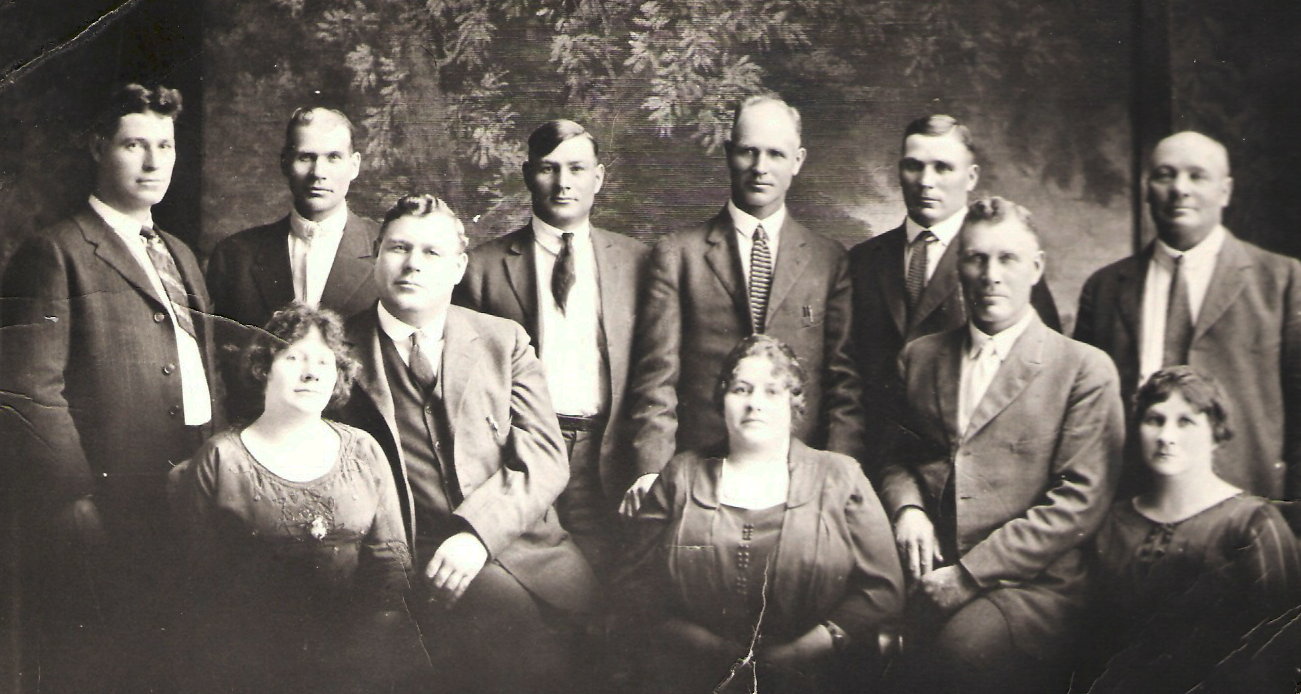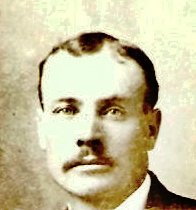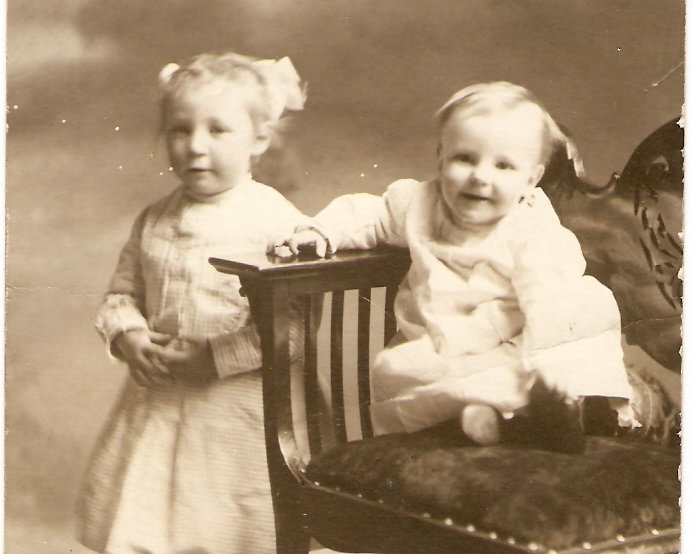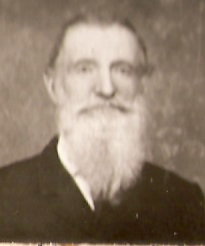
Biography[1]
David Wilding was born 24 November 1804 in Longton, Lancashire, England, the son of Henry Wilding and Jennet Bamber, and the tenth of thirteen children. It has been said the Wildings had lived since the 1200's in this small hamlet just across the River Ribble from the large city of Preston. George Wilding Sr. once said that Henry was a traveling salesman and came from the north of England. According to the burial records of Longton, Henry was a farmer, who lived to be eighty-two years old, and died in September 1850 in Longton.
David, who was trained as a doctor, married Alice Atkinson 23 October 1828 in Preston, Lancashire, England. She was born 8 April 1810 in Billsbarrow (a very small hamlet), Lancashire, the daughter of George Atkinson and Elizabeth Charnock.
Alice's grandfather, William Atkinson, was the schoolmaster of Billsbarrow and Myerscough, Lancashire, England. The Charnocks were a prominent family in Lancashire. George Atkinson was a drinker and when disappointment would come to him, he would tell his wife, Betty, "Get my check, pay my bills, and put what you don't need in the bank." Then he would go away and drink for awhile. When he came home, he would say, "How goes it, Betty?" Her answer, "All right." "How about the money?" She would explain what she had done. "That's a good lassie," he would say to her.
George taught his daughter, Alice, to read and write. Both she and David signed their own signatures on their marriage license, which was obtained in Preston. After their marriage, David and Alice lived on Williams Street in Preston. Their eldest son, George, was born there on the 9 November 1829; Elizabeth Ann on 28 May 1832; and James on 3 July 1835.
"Two men broke from the small clump of shrubbery and raced along the grassy river bank. One, the younger and more vigorous runner, drew ahead. A crowd of from 7,000 to 9,000 stood watching the race from both sides of the river and from the bridge.
"Some shouted, laughed, and cheered as the younger runner reached the 7 men standing at the river's edge. The onlookers were townspeople of Preston, England curious to see a baptismal ceremony performed by the strange young men from America called Mormons. Baptism by immersion was strange enough, but to do it in a river was unheard of.
"Winner of the race was George D. Watt, who thus won the honor of being the first convert in England to be baptized into the Church of Jesus Christ of Latter-Day Saints, the date 30 July 1837, a significant one in the history of the church and in England.
"Seven others soon joined the two contestants and the missionaries on the banks of the River Ribble. They were led one by one, into the water and baptized by Elder Heber C. Kimball, first President of the British Mission.
"Later in the afternoon of that same day 5,000 of those same townspeople gathered in the Market Place of Preston to hear what 'these Mormon dippers' had to say. Within a few months some 400 of this curious crowd would follow George Watt into the River Ribble. The harvest in England was indeed ripe for the MORMON missionaries.
"The Reverend James Fielding and his congregation at Vauxhall Chapel in Preston was ready. He had read to them his letters from his brother, Joseph, in America. Those letters told of the marvelous restoration of the gospel, of the new church, with a Prophet of God at its head, the Book of Mormon, of the signs, which followed those who believed.
"Both the Reverend Fielding and his brother-in-law, Reverend Matthews in Dedford, had left the ministry in established churches. They now led their congregations in a search for the true gospel that they felt had been lost. One Sunday morning Heber C. Kimball, Orson Hyde, Willard Richards, John Goodson, Isaac Russell, Joseph Fielding, and John Snider appeared in the congregation at Vauxhall Chapel. After the sermon Reverend Fielding announced, `There are some ministers from America present, and they will occupy the pulpit this afternoon.'
"In the afternoon meeting Elder Kimball outlined the history of the Church of Jesus Christ of Latter-Day Saints and Elder Hyde bore testimony. Both men were members of the Council of the Twelve Apostles.
"When in the days that followed, some of the congregation seemed inclined to follow the, Reverend Fielding barred the Elders from his pulpit and from that time on he opposed them bitterly. But the door to Great Britain could not be closed to the light of the Gospel. The thin beam was destined to become a great flood of light that would illuminate the entire land.
"The missionary work soon extended beyond Preston. Elders Richard and Goodson went to Bedford where Reverend Matthews opened his church to them with results similar to those in Preston. Elder Russell and John Snider, a priest, established themselves in Alston. The three missionaries remaining in Preston made frequent trips to surrounding areas. All found people ready to accept the gospel wherever they went.
"On Sunday 6 August 1837, eighty people gathered at the home of Ann Dawson, one of the first nine converts in Preston. The three missionaries confirmed them members of the Church and the first branch of the Church outside of the United States was officially organized." (Church Section of the Deseret News, 26 July 1958, page 12)
There was, also, a group of people called "The United Brethren" who were seeking for the Church which taught the Bible as Jesus did. This Chapel was where David Wilding attended Church. He was present at the meeting when the Elders spoke and Dr. David Wilding was so impressed that he was soon baptized and confirmed a member. He was willing to sacrifice all his worldly possessions in England for the Gospel's sake. It was in 1837, the year Victoria became queen, that David Wilding joined the Church.
David studied the Book of Mormon and received a testimony of its divine origin, which he shared with all that would listen. He was called to serve as a missionary companion to Heber C. Kimball. He was ordained an Elder in October of 1837 and the two traveled all through Lancashire. David was very impressed by Heber C. Kimball. When a new son was born to David and his wife 30 April 1838), he chose to name the baby Heber C. Kimball Wilding.
Early Church records of England give David's name as baptizing and confirming many persons. George was baptized by his father, David, in the River Ribble in 1839 and confirmed by his father and Thomas Richardson.
"The first number of 'The Latter-day Saints' Millennial Star' was issued at Manchester, in pamphlet form of twenty-four pages."[2] In Volume One, David Wilding was listed as the Presi-dent of the Rochdale Branch, Manchester, England.
David and Alice Atkinson Wilding had their Patriarchal Blessings on June 11, 1840. These blessings were given by Patriarch Peter Melling in England.[3]
The History of the Church tells of an important Conference of the Church in England held Monday, July 6, 1840, and gives names of the Branch Representatives. David's name is listed as representing the Branches at Bolton as well as Bury and Elton.[4] At that Conference David was one of the Branch "Officers" that was able and willing "to devote themselves entirely to the work of the ministry…"[5]
Another son joined the Wilding family 16 July 1840 and was named David William Patten Wilding. David and Alice soon developed a great desire to join the Saints in America. They worked hard to be ready for that very important day. On Thursday, February 11, 1841, Brigham Young, Willard Richards, and John Taylor chose men to be in charge of a company of Saints ready to sail from Liverpool to New Orleans on the ship "Echo" with Captain Wood. Daniel Browett was set apart to be in charge and his Counselors, who were also set apart, were: John Cheese, David Wilding, James Lavender, William Jenkins, Robert Harris, and John Ellison. They sailed on the ship "Echo" 16 February 1841 and landed at Nauvoo 1 May 1841.
David's records in Nauvoo show that his property was Lot 1 in Block 5 of the old Commerce city plat.[6] Those records also show that he lived in the Nauvoo Fifth Ward and Nauvoo Third Wards. The certificate he brought with him from England was dated February 11, 1841, and was given to him in Liverpool where it was signed by Brigham Young.[7] Nauvoo records also show that David had a home on Mulholland.[8]
George, David's son, often held the Prophet's horses, Joe and John, as the Prophet went about his business. One time the Prophet laid his hands upon George's head and gave him a blessing, then turning to David said, "David, this is your son, and he will be a great blessing to you." This blessing came true, as George was the only member of the family to remain in the Church.
Both David and his eldest son, George, worked on the Nauvoo Temple. David was employed as a carpenter and George worked as a stone mason. David was a member of the Nauvoo Legion and his name is listed on page 1164[9] of the original record. On September 7, 1843, he was named as a Third Lieutenant and the date of his Commission was October 28, 1843.
Two children were born to David and Alice in Nauvoo, Hancock County, Illinois. They were:
Joseph Smith Wilding Born: 12 April 1843
Jennetta Wilding Born: 8 September 1845.
David and Alice left Nauvoo with the Saints and went into Iowa where four more children were born:
Henry Wilding Born: 1 July 1848 at Crescent, Pottawattamie, Iowa
(Henry & Alice were twins. Henry died 20 August 1848)
Alice Wilding Born: 1 July 1848 at Crescent
Thomas Wilding Born: 18 March 1851 at Crescent
Sarah Ellen Wilding Born: 14 July 1853 at Council Bluffs.
Alice learned much of pioneer life as they lived in Nauvoo and Iowa. She often made oatmeal pancakes and strung them to dry to be used later in oatmeal porridge.
David came to Salt Lake City in the early 1850's, a few years after his son George and his family arrived. David made his home on the corner of 1st North 5th West. He lived there but a short time and then returned to Iowa with the rest of his children. After the rich promise of his youth and young manhood, David strayed from the Church because he was unable to accept Brigham Young as the Prophet Joseph's successor. He later joined the Josephite Church[10] in Iowa.
Alice died in Florence, Nebraska 9 August 1876 at the age of 66 and was buried in Council Bluffs, Iowa. David, the founder of the huge Wilding clan in Iowa, Utah, and Idaho, died 8 October 1890 at the age of eighty-six years in Crescent, Pottawattamie County, Iowa. He was buried in Council Bluffs, Iowa, in the Fairview Cemetery, Section A, Lot 310.[11]
PATRIARCHAL BLESSING[12]
Conferred upon the head of: Allice Wilding
Born: In Billsborrow, Lancashire, England on the 8th day of April 1810
Under the hands of Patriarch: Peter Melling
Date of Blessing: 11 June 1840
A Patriarchal Blessing confered upon the head of Allice Wilding who was born in Billsborrow Lancashire England on the 8th day of April 1810. Under the hands of Peter Melling Patriarch of the church of Jesus Christ of Latter day Saints England at a meeting held for that purpose on the 11th day of June 1840. Allice in the name of Jesus Christ I lay my hands upon thy head and according to the Authority of the Holy Priesthood given unto me I pray our Father would regard thee and that he would bless thee at this time and I do bless thee in his name and inasmuch as thou art humble before the Lord and watchful in all things thou shall find him near at all times when thou callest upon him he sall strengthen thee when thou art weak he will comfort thee when thou art weary and thou shall find that he is a friend at all times near at hand thou shall be blessed also in bringing forth thine ofspring and thou shall inasmuch as thou art faithful see his salvation thou shall be blessed with inteligence and thou shall rejoice with thy partner in all his labours thou shall see strange things come to pass thou shalt have dreams and visions thou shalt know of the mystries of heaven thy posterity shall be blessed and be a numerous people thou shalt speak with tongues thou shall experance and enjoy all these Blessings even according to thy faithfulness and humility before the Lord thou shalt have joy of heart such as thou hast not known and thou and thy partner shall rejoice together I pronounce these blessings upon thy head in the name of Jesus Christ and according to the Authority of the holy priesthood given unto me I seal the[e] up unto eternal life. Amen.
PATRIARCHAL BLESSING[13]
Conferred upon the head of: David Wilding
Born: In Longton, Lancashire, England on November 24, 1804.
Under the hands of Patriarch: Peter Melling
Date of Blessing: June 11, 1840
A Patriarchle Blessing confered upon the head of David Wilding who was born in Longton Lancashire England on the 24th day of November 1804 Under the hands of Peter Melling Patriarch of the church of Jesus Christ of latter day Saints in England on the 11th day of June 1840. David in the name of Jesus Christ I lay my hands upon thy head and according to the Authority of the holy Priesthood given unto me I pronounce upon your head the blessings of Abraham Isaac and Jacob and you shall be blessed insomuch that you have humbled yourself and gon down to the waters of baptism therefore dear Brother I say unto thee thou shalt be exhalted take incouragement Brother and go on for the Lord shall be thy defence yea thy shield and thy esceeding great reward, I feel to say thou art of the blood of Ephriam and thou shalt be blessed with his people and as thou art called to this important office to preach the gosple I pray our Father that he may inlarge thy heart and give thee wisdom and that thy faith may be great so that thou shall command the blind to see and the lame to walk and many shall rejoice at the sound of thy voice keep humble dear Brother and the day cometh when the day cometh when great things shall be done by thy instrumentality for thou shall go forth in his power and great things shall be accomplished by thee even according to his migty powr that has called thee thou shall stand before great men of the Earth and the word of the Lord by thee shall penetrate to their hearts thou shalt be blessed in thy Labours and shall return to Zion with many sheaves at last these blessings I pronounce upon thy head in the name of Jesus Christ, thy seed also shall be blessed and thy ofspring shall be numberous these blessings with every other inasmuch as thou art humble and faithful I seal upon thy head and according to the authority of the holy priesthood which is given unto me I seal thee up unto eternal life amen
[1] This history was slightly modified by Bonita (Bonnie) Park Atkinson from the history compiled by Geneva M. Wilding, Genealogist for the Wilding Family Organization. The Sources she used are as follows:
(1) History of David Wilding
(2) History of George Wilding Sr.
(3) Deseret News Church Section, 26 July 1958, p. 12
(4) Family Group Record of David Wilding & Alice Atkinson
(5) Parish Register of St. John's Church, Preston, England - (Marriage Records)
(6) Bishop's Transcripts of Longton & Penwortham, Lancashire, England copied by Mrs. Mary
Fielden, Penwortham, England.
[2] Joseph Smith, History of the Church, (Deseret Book Company, Salt Lake City, Utah, 1970), Vol. IV, page 133.
[3] Xerox copies of the handwritten blessings are in the possession of Bonnie P. Atkinson, St. Anthony, Idaho.
[4] Joseph Smith, History of the Church, (Deseret Book Company, Salt Lake City, Utah, 1970), p. 148.
[5] Ibid.
[6] See information received from the Family History Library in the LDS Visitors' Center in Nauvoo. David's Rin number in their computer is 28229. See, also, the personal information on David and his family.
[7] See LDS Ward Record of Membership on FHL Film #581,219, from 1839-1846.
[8] In 1989 a Service Station was on the corner where the Wildings had lived.
[9] See xerox copy of the original record. The date, rank, and year are written in as it was shown with "ditto" marks from the preceding page. Copy in possession of Bonnie P. Atkinson.
[10] Once referred to as the "Josephite's", we now know this as the R.L.D.S. or Reorganized Church.
[11] Thomas Edward Wilding III found that David was buried in the Fairview Cemetery with the Section and Lot.
[12] This blessing has been typed with the original spelling and punctuation.
[13] This blessing has also been typed with the original spelling and punctuation









